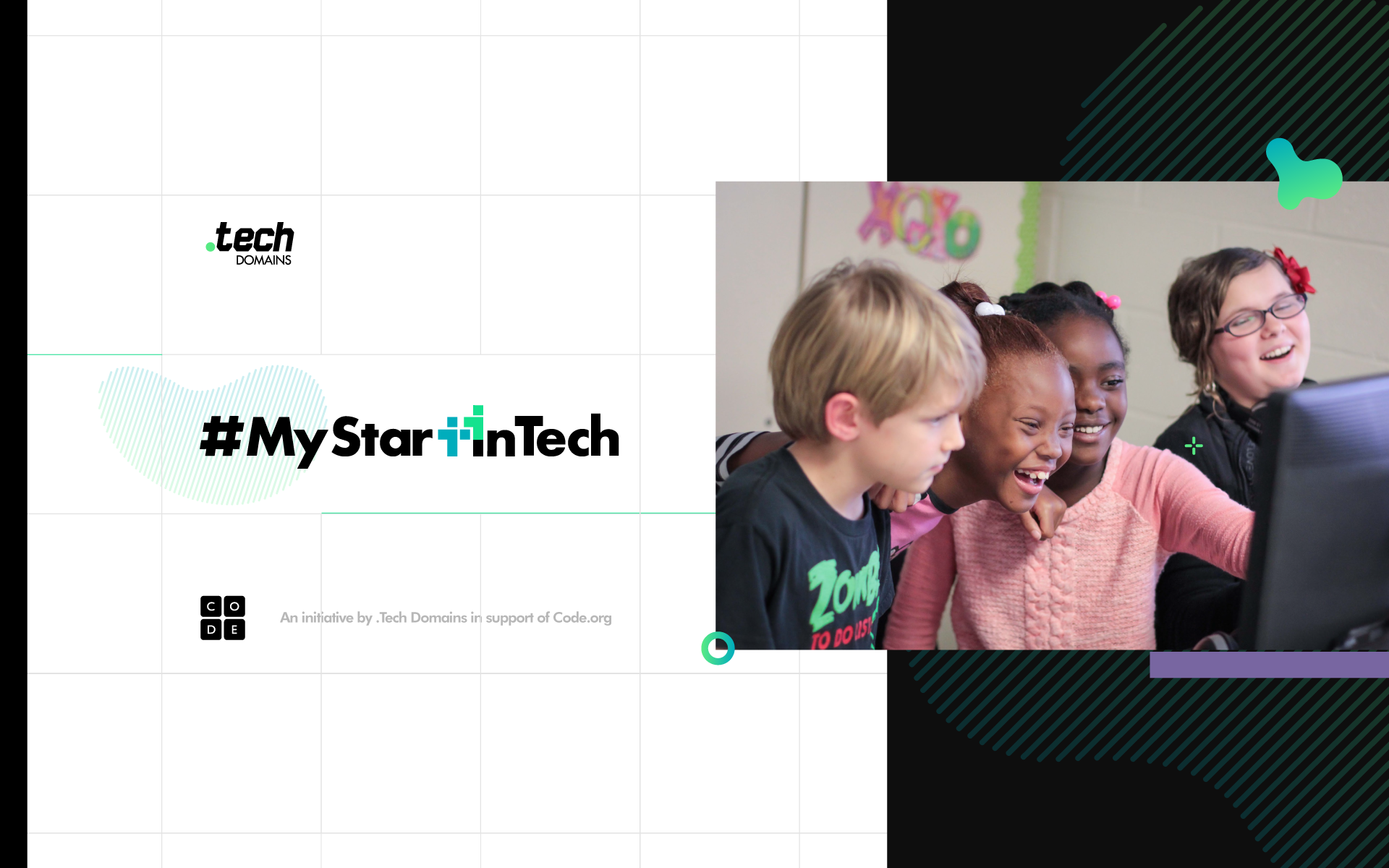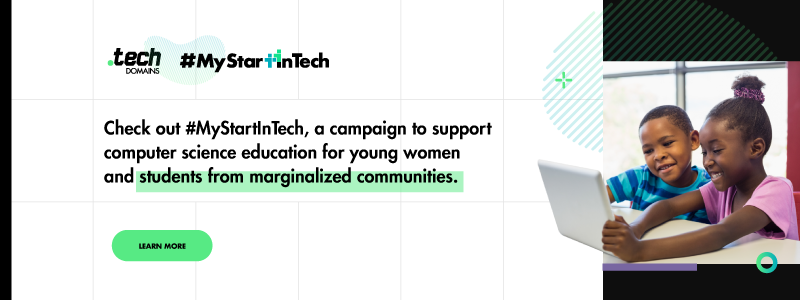The tech workforce in the US is not growing at an optimal pace. The number of schools offering computer science is not enough which is impacting the access of computer science to young women and students from marginalized communities.
The truth is that there are over 410,020 open computing jobs in the US but only 71,226 computer science students graduated into the tech workforce last year.
This is because only 47% of public high schools in the US offer computer science which deeply impacts its access to young women and students from marginalized communities.
To address this pressing issue, we have launched #MyStartInTech, a campaign dedicated to drawing attention to this cause and in turn, help widen access to computer science in schools.
As part of this campaign, we present the #MyStartInTech interview series where some of the esteemed tech entrepreneurs and professionals in the industry share details about their journey in tech. With this, we hope to draw attention to the infinite opportunities that will lay open if young women and students are given the opportunity to study computer science.
In this interview, Juan Pablo Flores, Program Manager, GitHub talks about how he got his start in the tech world.
Juan Pablo is a computer engineer who has dived into the world of management. He is a Program Manager at the GitHub Education Team, where he supports student leaders to build and grow local technical communities in their schools in the GitHub Campus Experts Program.

Let’s find out what he has to say!
What are your earliest memories of using a computer in school?
From a very young age, I was always interested in computers. In those times, having a computer at home started to become more accessible and I was lucky enough to have a computer my family could share.
Finding out about video games on a PC was life-changing for me and as time passed my curiosity on how they worked got me to install CheatEngine, a tool used to cheat in computer games by modifying the game.
Being able to make the game do anything I wanted, created an obsession in me to better understand how computers work. In the end, I never expected that in reality, I was learning about variables and computer memory.
At the same time, I was learning basic computing skills at school. Though this wasn’t the first interaction I had with computers, it allowed me to talk with teachers about the other things I was making with video games.
Normally, those classes were easy for me and it was at that moment that a teacher gifted me my first programming book. A Java EE book that was old even for that time but most of the content was still used in the industry – I know it’s not the most attractive programming language but at that time Java was still quite new and gaining popularity.
At what point did you know you wanted to pursue tech?
I was always around folks who were tinkering with computers in some way. Moving from friends to small groups and ending up in communities was a key component of my journey into deciding to study computer science. My “Aha!” moment was when I attended my first hackathon.
As any first-time hackathon attendee, I didn’t have an idea of what to expect from the event nor what was expected of me. I was in my last year at high school and had some basic HTML, CSS, and JS experience, not to mention the small experience with Java. Got to the event without a team. I was lucky enough to make some friends in the registration who would eventually become my team. Our team was very diverse with journalists, robotics engineers, and developers.
Watching everyone working hard on a project and supporting each other to build an MVP was mind-blowing for me at the time. We rarely see spaces with such collaboration and openness to sharing. It was at that time that I knew I wanted to be part of this.
How important is it to increase access to computer science and technology for underrepresented communities and young women today?
I like thinking of computer science education as LegoTM. You need a set of pieces and instructions to have a final model. University and traditional education models are some of the most common ways to get the pieces and instructions necessary to build a career in tech but, definitely, not the only ones.
Unfortunately, not everyone has access to the same set of pieces (resources), and sometimes even the instructions might look different. This is why having accessible learning resources for students and professionals plays a fundamental role in the industry. They serve as a way to provide equal access to opportunities.
Community is another big component. Community leaders need to make sure their communities are welcoming and accessible for everyone. By doing so, they will not only promote underserved groups and minorities to join but also amplifies the impact their community has and provides equal opportunities to its members. This is the reason why we make an intentional effort for students to develop inclusive communities while joining the GitHub Campus Experts program.
Why it is important that brands such as .Tech Domains step up to do their bit to solve this problem?
There is still a long way to go but, throughout the past couple of years, we’ve seen several companies becoming more actively involved in the education ecosystem. It’s important to listen to local leaders and support their efforts to bring diverse voices together. No one knows the context and challenges better than them.
I’m very excited to see companies like .Tech leading the charge and bringing multiple organizations together. It is through collective effort that we can really make an impact in the future of marginalized communities around the globe.


